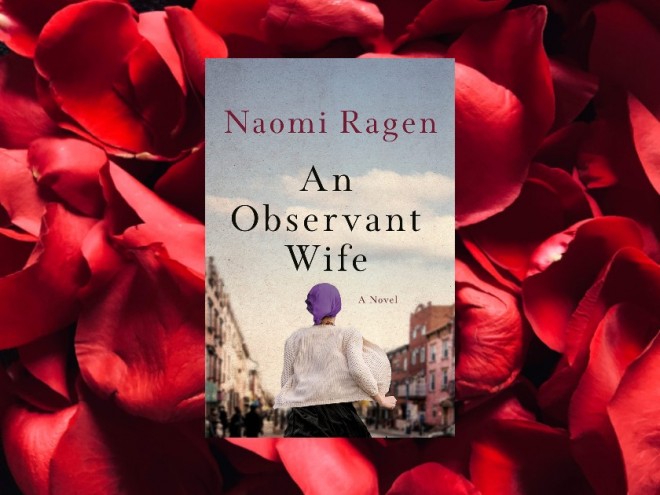This is a riveting novel about a conflicted young Orthodox Jewish girl growing up in the late ’50s in Williamsburg, Brooklyn. She faces two problems: the highly restrictive rituals of a rigid family and the condescending attitude of the Williamsburg Orthodox world toward girls. Her awakening and breaking of the chains holding her down is the focus of the book. Rose, the older of two daughters, seems to become aware of gender prejudice at the age of four when her younger sister attempts to repeat the blessing her father is making over wine at the seder. Instead of being charmed by this three-year-old’s attempt to recite a prayer, the family is outraged. Ragen explains it this way:
“Had she been a boy, the scenario would have been quite different. Perhaps one of the men would have lifted him up onto a stool. Perhaps Rabbi Weiss would have allowed him to touch his arm, looking at him encouragingly, and everyone would have been delighted at this display of early saintliness on the part of a child so young and so eager to perform a religious obligation. But as it was, it was viewed as a sign of bad character and even worse, bad upbringing, a female putting herself in front of a room full of men in a wanton and naked display of desire to be the center of attention — an anathema to any truly religious girl from a truly religious family.”
And when she spills the wine she attempts to drink after saying the blessing, she is hit and runs to her sister, whose head is covered with wine. Then, when she attempts to dry it with a napkin, she is told it is forbidden to use cloth on the Sabbath. She keeps complaining about the sticky hair she sees but to no avail. This is only one instance when the rituals of a narrow-minded family contradict common sense.
Throughout the book, Ragen provides many other instances of harshness based on a very narrow view of religion, such as Pearl’s having to wear thick gray tights to school starting at the age of six, because of “modesty” even in 90 degree weather, and being expelled from school for looking at a book of photographs deemed inappropriate by her parents and their rabbi. She is punished harshly by being sent away to her grandmother’s house in a neighborhood where she knows no one and by not having her parents communicate with her for a year. Rose questions her parents about who is the boss over her, the rabbi or her parents but to no avail. Ragen’s memory for details of life in the ’50s is incomparable. She describes the way in which Rose’s love of photography came about from a visit to her classroom by a bank representative who explained the benefits of having a savings account and distributed a passbook to each member of the class, along with a gift of a camera. In those days, banks recruited people from poor neighborhoods by going into schools to encourage the poor to save money. The condescending reasoning behind this was that the poor wasted their money.
This event is the beginning of liberation for Rose. She begins taking pictures, joins the library where she can borrow photography books, and secretly takes a photography class at night at a university. When this is discovered, the family decides the only solution to her brazenness is to marry her off. Since she is considered damaged goods, they arrange matches with simpletons, or arrogant males, and Rose goes along with this until she cannot bear the thought of married life with any of their choices and runs away the night before her arranged marriage. The second half of the book takes place forty years later and relates Rose’s new life as a famous photographer, her guilt about every law she knowingly breaks, and her sudden relationship with a niece who shows up unexpectedly at her door and who breaks the long silence of her family.
This book is educational for those who do not know the laws of strict Orthodox life, as Ragen explains more than two dozen of them within the context of the novel. It is also riveting, as Ragen is an accomplished story teller.
Courtesy of Naomi Ragen



